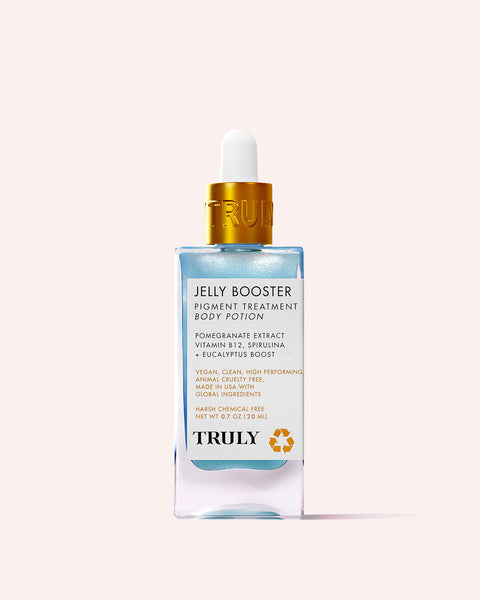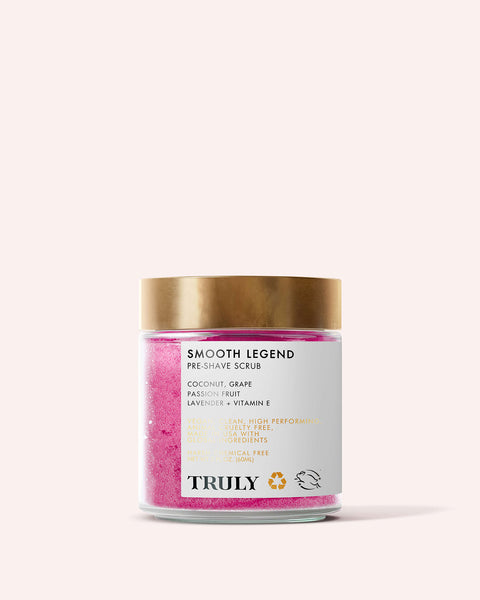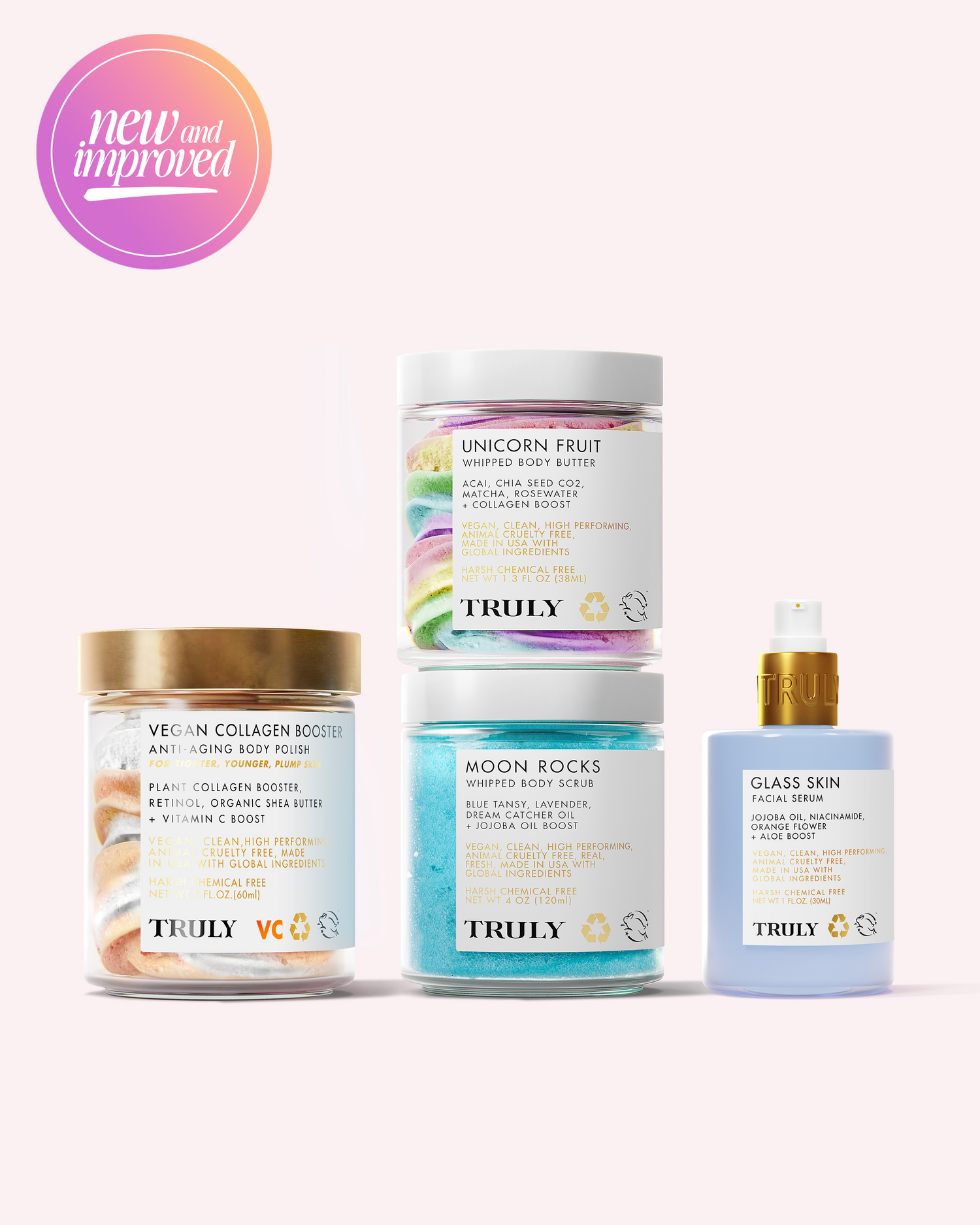What Your Skin’s Microbiome is (And How You Can Protect It)

Believe it or not, healthy skin is anything but clean.
See, your skin has its own unique ecosystem of bacteria (good bacteria, btw!), fungi, and viruses that significantly affect how it functions. Maintaining balance is key to keeping your complexion healthy, hydrated, and glowing.
"The impact of microbiota is global and universal, and central to our very existence," says chemist Marie Veronique Nadeau. "Most microorganisms are really nice creatures that you would want as your neighbors."
To help you make sense of your skin's microbiome, we've gathered all the intel we could find so you can understand how it works, what affects it, and how to promote the overall health of your skin.
WHAT IS THE SKIN’S MICROBIOME?
The skin microbiome, also known as the skin flora, refers to the trillions of microscopic organisms that live on your skin. Those microbes are responsible for protecting your skin from pathogens, supporting the skin barrier, and boosting the skin's immune system.
It aids your skin in a number of ways, from minimizing damage from UV rays and pollution to providing the skin with hydration to slowing down signs of aging, microbes are your skin's ultimate first line of defense.
Like your gut microbiome, your skin microbiome is completely unique to you. Think of it like a fingerprint, in which yours is like no other.
It starts at birth. After nine months of living in a sterile environment in your mother's womb, your skin is exposed to the outside world's organisms. With each passing year, your skin changes and evolves based on your environment and your activities. It also adapts to give your skin whatever it needs.
When it comes to keeping your skin microbiome healthy, it's vital that you focus on the health of your skin barrier to keep irritants and bad bacteria out, and keep it functioning optimally.
You'll know when your skin microbials are out of whack because you'll start to see symptoms such as dryness, breakouts, fine lines and wrinkles, and sensitive skin. A compromised skin microbiome can also lead to a range of skin conditions including eczema, rosacea, atopic dermatitis, and psoriasis.
WHAT'S COMPROMISING THE SKIN MICROBIOME?
Life...to put it simply.
According to green chemist Alison Cutlan, "Our modern lifestyles, including what we eat, being over-hygienic, the products we use, and our reduced exposure to nature, have decreased our microbial diversity making us more susceptible to dysbiosis associated with chronic inflammatory skin conditions, such as dryness, overproduction of sebum, breakouts, redness, and inflammatory condition."
Even certain skincare routines can impact the skin's microbiome. For instance, using lots of active ingredients, double cleansing, or layering too many skincare products can all be to blame for causing an imbalance in your skin microbiome. That's because they're too intense. And that in itself can harm the skin barrier, leaving it susceptible to harmful skin bacteria and other external aggressors.
Even COVID is compromising skin microbiome. All that hand washing and sanitizer usage is stripping the skin of its natural oils and the healthy bacteria that keeps the skin's surface thriving.
HOW TO ACHIEVE HEALTHY SKIN MICROBIOME
To boost your skin microbiome, a gentle yet effective skincare routine can help. Equally as beneficial: removing products that are too harsh for your skin. Here are some tips for achieving skin health through healthy skin microbiome.
Opt for Natural, Gentle Products with Simple Ingredients
Be mindful of what you're actually putting on your skin. Some people don't realize it, but some skincare products are too intense for most skin types and could it be causing many of your skin issues.
Use cleansers and moisturizers with nourishing ingredients like aloe vera, jojoba oil, and shea butter.
Avoid irritating ingredients like preservatives, certain essential oils, and harsh surfactants which can mess with the skin's natural alkaline pH.
Embrace Probiotic Skincare
Incorporate prebiotics, probiotics, and post-biotics that support a healthy microbiome. With topical application, these ingredients will help balance the skin and help it recover faster. It will also prevent an overgrowth of harmful bacteria that may compromise your skin barrier.
Less is More
Too many steps in our skincare routine could be harming your skin's microbiome. That's because it exposes the skin to hundreds of chemicals that cause imbalances and sensitivities in the skin.
Take a look at your current routine and ask yourself, do you really need that toner, face mask, or double-cleansing method? Are all those serums you slather on each night possibly doing your skin more harm than good? The less you put on your skin, the more robust your skin's microbiome and skin barrier will be. So streamline your skincare routine asap!
Bring in the Antioxidants
As we said before, the state of your skin's microbiome depends on the environment and the products to which you expose it. Antioxidants such as vitamin C are highly effective at boosting your skin's microbiome as they increase the production of barrier lipids in cell culture and strengthen your skin barrier.
BEST MICROBIOME-FRIENDLY SKINCARE PRODUCTS
Looking for some microbiome-friendly skincare products to enhance your skin's overall performance? Here are the best ones we've found so far...
Truly's Dew You Love Me Jelly Face Mask
This glittery formula blends vitamin c with antioxidants to protect skin cells from UV damage, strengthen the skin's ability to repair, and prevent redness and inflammation.
Blueberry Kush CBD Face Oil
This illuminating face oil combines blueberries with collagen and vitamin C to protect, brighten, and smooth skin. CBD is another powerful antioxidant in there that helps fight free radicals and rejuvenates the complexion.
Unicorn Fruit Whipped Body Butter
This candy-scented body cream is made with skin-repairing ingredients such as acai, collagen, matcha, and rose to soothe the skin and provide a protective, hydrating barrier.
It only takes a few simple switches in your skincare routine to get your skin's microbiome functioning at an optimal level. By incorporating natural, gentle ingredients and following a simpler daily routine, you should soon start to see the benefits of keeping your skin's microbiome healthy. Think smoother, softer, clearer, brighter, younger-looking skin!








